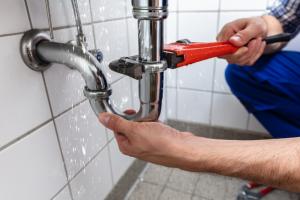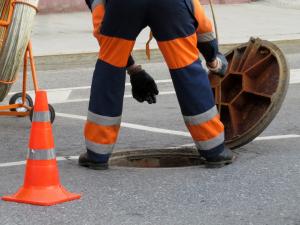Dealing with Blocked Drain Pipes
Apofraxeis Anagnostou has been active for the last 20 years in the field of blockages and water pumping. All these years we have been providing the best services, with reliability and consistency.”
ATHENS, GREECE, November 17, 2022 /EINPresswire.com/ -- Drain clogs can be annoying, but if a homeowner locates them early, they may be relatively easy to fix and may avoid more serious leaks, overflows, or damage. It is seen many times in the news reports of greasy substances that can cause massive public sewer blockages, causing sewage to pile up in homes and streets. Those should go in the waste basket otherwise create blockages in the drains.— Nikos Anagnostou
Apofraxeis Anagnostou has a skilled workforce. Technicians handle all caulking issues and offer a range of caulking-related services to your home throughout Athens and Cyclades. They are the leading providers of sewer inspections, unblocking services, and repairs for homes, hotels, and businesses.
Blockages in the kitchen
• The bad habit of throwing the cooking oil from the potatoes into the sink is one of the most serious problems. Grease from fats and oils may be a liquid when entering a drain, but it soon cools down there and will solidify quickly. It will become a sticky solid mass that adheres to the walls of the pipes and adheres more waste to it. It is the most serious problem for blockage in drain pipes and a financial joy for all blockage companies. The recommended solution is to use a grease trap- a lined disposable container- to dispose of used oils and fats. Alternatively keep a mini bin in the kitchen for food waste – it's healthy for both the pipes and the planet!
• Leftover food from plates and pans. A mesh in the kitchen sink will also trap food debris from washing up. They are easy to clean – just make a habit of emptying them regularly.
• Hair from both humans and pets is also a major factor in clogging pipes. The simplest way to prevent clogs and hair from building up in drains is to install screens and filters in all your drains. Especially in shower and bath drains.
• Coffee beans create something like organic glue. Coffee beans look like a harmless, free product to wash down the sink. However, you may be surprised to learn that they are a high-risk factor for blockages. Dispose of them – along with other food waste such as rice and pasta – in the food waste bin.
• Kitchen rolls and papers.
Blockages in the toilet
• Makeup cleaning products
• Baby wipes, even if they say 'flushable'
• Diapers
• Plasters and bandages
• Tampons and applicators, plastic and cardboard
• Hygiene and incontinence products
• Razors
• Fibrous materials. Items such as wet wipes, dental floss, cotton, and feminine hygiene items should be disposed of in a bin and not flushed down the toilet. They can easily stick to rough places in drains and build up potential blockages.
Engine oil, paints, battery fluids, and solvents must be disposed of safely by local regulations. They should never be introduced into the water supply where they can harm our groundwater and be toxic to plants and wildlife. Return unused medication to a pharmacist for safe disposal.
Blockages in outdoor areas
It goes without saying that you should always try to keep your yard drains free of leaves, foliage, twigs, rocks, or other garden debris that could enter the drain and cause blockages.
Sweeping your garden regularly, and using leaf compost is one way to prevent these drains and pipes from becoming clogged. It is also good to regularly check if you have an external cesspool and its height. Monthly maintenance and cleaning of cesspools must be done on time.
If there are frequent blockages and you take care of all the above then you may need to ask for the help of a specialist blockage company. Because the problem may be mechanical (poor piping gravity) to identify the cause and relieve the blockage.
There are certain techniques that a drainage expert will use. Such as including the use of CCTV i.e., pipe inspection cameras to take a close look and locate the hard-to-reach areas of the drain to see what has blocked the water flow. Professional unblockers can also advise on what to do in the future to prevent this from happening again.
Educate the family on what is safe and unsafe to flush down the drain. It's also a good idea to use some simple regular cleaning procedures. Most blockages are preventable. But if the drain pipes become blocked, quickly call for professional help.
Nikos Anagnostou
Apofraxeis Anagnostou
+30 2108993343
info@apofraxeisanagnostou.gr
Visit us on social media:
Facebook
Twitter
Other
ΑΠΟΦΡΑΞΕΙΣ - APOFRAXEIS.COM
Legal Disclaimer:
EIN Presswire provides this news content "as is" without warranty of any kind. We do not accept any responsibility or liability for the accuracy, content, images, videos, licenses, completeness, legality, or reliability of the information contained in this article. If you have any complaints or copyright issues related to this article, kindly contact the author above.



